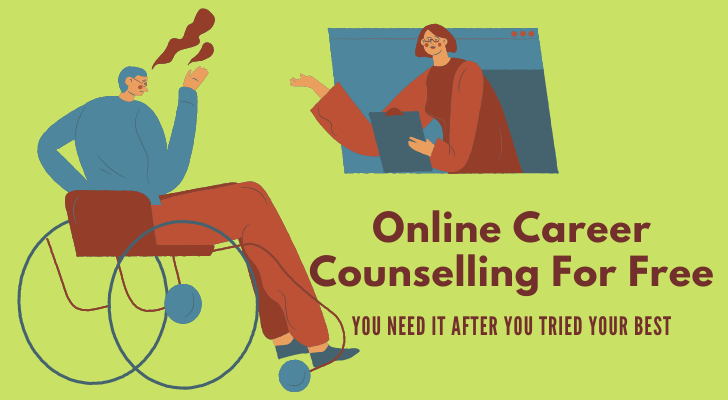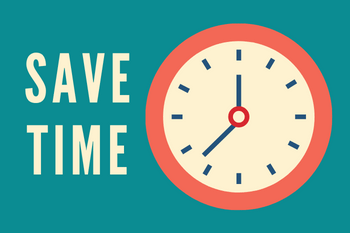Are you stuck in a rut? Are you unsure of what career path to take? Do you feel like your current job isn't giving you the satisfaction and fulfilment that you need? After you tried all that you can think of and still has no answer, online career counselling is often available for free. It’s there to help find clarity and purpose in your work life. It can help you identify your strengths and weaknesses, give you insight into different career paths, and provide advice on how to make the best decisions for yourself. So why is career counselling important and how can it benefit your life? Let's take you through.

Did You Know?
- Increased Demand: Career counseling services have seen a growth in demand by approximately 30% over the past decade, reflecting changing job markets and economic uncertainties.
- Success Rates: About 80% of individuals who receive career counseling report increased clarity and confidence in their career choices.
- Early Career Decisions: Studies suggest that career counseling in high school can increase college readiness and career decision-making skills by up to 25%.
- Career Transitions: Approximately 60% of adults consider a career change at some point, and those who use career counseling services report a 35% higher satisfaction rate with their new career paths.
- Unemployment Reduction: Career counseling has been linked to a reduction in unemployment time, with job seekers finding employment 20% faster.
Why is Career Counselling Important To You?
Choosing a career can be a daunting task, especially if you don't know where to start. That's where career counselling comes in. Career counselling is all about helping you figure out what you want to do with your life and how to achieve your goals.
A career counsellor will help you assess your skills and interests, research different careers, and make a plan for achieving your goals. They can also provide support and guidance if you're struggling with making a decision or dealing with job-related stress.
In the past, people graduated college and grabbed whatever job that was available locally. Now that there are thousands of possibilities online worldwide, which means the market is extremely competitive. You are expected to be flexible, and that’s why you don’t want to make a mistake by taking the wrong job type and wasting your precious time.
Online consultation services could be the first step towards finding the path that's right for you.
How to Find a Career Counsellor
If you are prepared to pay for counselling, you want to make sure that the counsellor is qualified and has the experience necessary to help you find the best career path.
But if you are looking for a free counsellor, you should remember that there is a catch; they are trying to make money elsewhere rather than charging you. It means that they may encourage you to take a course or a job that you may not want, so they can earn a commission from it.
It’s best to search online for counsellors in your country. Alternatively, you can look for counsellors from different countries but you want to make sure that you find someone who can understand the trends and characteristics of your country.
Once you've found a few potential counsellors, be sure to schedule an initial consultation to get a feel for their personality and approach to counselling. During this meeting, you should also ask about the counsellor's fees and whether they offer sliding scale rates or payment plans.
Be sure to choose a counsellor who you feel comfortable with and who you feel will be able to provide helpful, unbiased advice.
Did You Know?
- Job Satisfaction: Individuals who received career counseling report a 40% higher job satisfaction rate compared to those who did not.
- Mental Health Benefits: Career counseling services can lead to a 30% decrease in anxiety and depression related to career uncertainty.
- Skill Identification: 90% of clients report better understanding their skills and abilities after career counseling sessions.
- Increased Earnings: People who engaged in career counseling are likely to see a 10-20% increase in their initial salary offers due to better negotiation skills and job fit.
- Online Counseling Growth: The use of online career counseling services has increased by over 50% since 2015, highlighting the shift towards digital platforms.
What to Expect in a Career Counselling Session
A career counselling session is a meeting between a counsellor and an individual to discuss the individual's career options, education and job prospects. They will ask questions about your skills, interests and work experience, and will use this information to help you identify potential careers. They will also provide information about different careers, educational requirements and job market trends.
If you have no skills, interests or experience, you don’t need to feel ashamed or embarrassed about it because that’s what the counsellors are there for. The important thing is to be totally honest with them. After all, you don’t want to be persuaded to take a career that you never really want in the first place.
How Often Should You See a Career Counsellor?
It is important to see a career counsellor regularly in order to get the most out of the counselling process. Depending on your needs, you may need to see a counsellor weekly, bi-weekly, or monthly. The frequency of visits will be discussed during your initial consultation.
The Different Types of CareerCounselling
There are many different types of career counselling, each with their own unique benefits. Here are a few of the most popular types:
1. One-on-one career counselling:

This type of counselling is ideal for those who want individualized attention and tailored advice. With one-on-one career counselling, you can get specific feedback about your career goals, skills and experience.
2. Group career counselling:
Group career counselling can be beneficial if you want to learn from the experiences of others. In a group setting, you can gain insights from other people’s stories and get new perspectives on your own career journey.
The attendees can motivate each other and discuss their strengths and weaknesses together. On the other hand, you may feel intimidated if other attendees are more experienced or sharper than you.
3. Online career counselling:
Online career counselling offers the convenience of getting advice from the comfort of your own home. You can access online resources at any time, day or night. Many online counsellors also offer email and chat support for additional assistance.
4. Career coaches
Career coaches can help you make a plan to achieve your goals and overcome obstacles along the way. A coach will provide support and accountability as you work towards making positive changes in your professional life.
Did You Know?
- Graduate Employment Rates: Career counseling services in universities are associated with a 15% higher employment rate among new graduates.
- Employee Retention: Companies that offer career counseling to employees have seen a 25% increase in employee retention rates.
- Career Development: 70% of professionals who participated in career counseling felt more equipped to develop their career path strategically.
- Networking Opportunities: Through career counseling, 65% of individuals report expanded professional networks and connections.
- Life Satisfaction: After receiving career counseling, 75% of individuals report higher overall life satisfaction.
Career Counselling Courses
Instead of receiving counselling, you can consider taking a course instead. Because rather than taking advice from a professional, a course can let you jumpstart your career and make a successful transition into the workforce.
These courses allow you to build the skills and knowledge necessary to identify job opportunities, research industries, and apply for positions. They can also help you to gain experience through internships, workshops, and hands-on training.
Also Read: I Have A Disability And Need A Job – What Can I Do?
CyberCash Wonderland
"I went to a career counselor, and after an hour, guess what I discovered?"
"What? Your dream job?"
"No, they told me that my ideal career was being a career counselor. So I'm thinking of starting my practice."
"Oh great, I need a career counseling. Give me your advice then."
"Avoid career counseling sessions that make you want to switch to career counseling."
The Different Types of Career Counselling Courses
Some courses focus on helping you understand your own personality type and strengths, while others provide more general information about different careers and job markets.
Most career counselling courses will include some combination of
- Lectures,
- Discussions, and
- Individual or group exercises.
Many courses are taught by experienced counsellors who have a wealth of knowledge about different career paths. Some courses may also include guest speakers from various industries, giving students a chance to learn about specific careers firsthand.
Courses typically last anywhere from one day to several weeks, depending on the amount of content covered. Some courses may be taken as part of a degree program, while others are offered as standalone workshops.
Pros and Cons of a Career Counselling Course

After all, it depends on how you feel about taking a course just to find a career. A course can give you the skills and knowledge for the right career path, but it always comes with a cost. However, it may all be worth it if you think about it. Choosing the right career is probably the most important thing in life for most of us.
Let’s take a closer look at the pros and cons of a career counselling course:
Pros:
Cons:
Did You Know?
- Career Readiness: High school students who participate in career counseling programs are 40% more likely to feel prepared for their future careers.
- Diverse Workforce Integration: Career counseling helps 50% of minority individuals to overcome barriers to employment and advance in their careers.
- Soft Skills Improvement: 85% of career counseling clients improve soft skills such as communication, teamwork, and problem-solving.
- Long-Term Career Planning: 60% of career counseling recipients report having a clear long-term career plan post-counseling.
- Return on Investment: For every dollar spent on career counseling services, individuals see an average return of $5 in increased earnings over their lifetime.
What Will You Learn in a Career Counselling Course?
You will learn how to assess a person's interests, abilities, and values, and match them to appropriate careers from a course. You will also learn about job search strategies, labour market trends, and effective ways to counsel clients through difficult transitions.
How to Choose the Right Career Counselling Course for You
Choosing the right career counselling course is a big decision. Here are some tips to help you choose the right career counselling course for you:
1. Research different types of courses
There are many different types of career counselling courses available, from online programs to in-person classes. Consider what type of learning environment would suit you best.
2. Compare costs
Career counselling courses can vary greatly in price. Consider your budget and whether payment plans or scholarships are available before making your final decision.
3. Learn proactively
To take advantage of all the resources available in the course, you need to be open to all the possibilities. Be willing to gain skills to help you transition into a new career. If there’s anything unclear to you, don’t be afraid to ask questions. No question is silly because you are paying for it, and that’s what the course is for.
4. Narrow down your options
Some career options may be completely irrelevant to you, so take a pen and paper, and write down the ones you think you are interested in. So you can find the best ones quickly.
5. Get advice from professionals
If you're still undecided, reach out to a career counsellor or other professional for advice on which course would be best for you.
Consider Running Your Own Business Online
Working for someone else is not the only choice available to you. Many people are turning to the internet to explore their entrepreneurial dreams and launch their own businesses using digital tools. Starting a business online requires careful planning and strategy, but it also has huge potential for success.
Now that you are required to be flexible more than ever, building a business from the ground up will bring in recurring revenue and lasting success.
What You'll Need
Running a business online can require very little investment, and the steps to take the decision is pretty straightforward.
- Decide what kind of business you want to run. It is best to choose a topic that you are familiar with and that excites you.
- Create a website for your business. This will be your online storefront, where potential customers can learn about your products or services and contact you to make a purchase. You'll need to register a domain name for your website and find a web hosting company to host your site.
- Set up social media accounts for your business. This will help you promote your products or services and connect with potential customers.
- Put together a marketing plan in order to attract new customers and grow your business. This involves identifying your target market and figuring out the best way to reach them.
- You may need to invest in some advertising or hire a marketing firm to help promote your business online.
Making the Decision
Here are a few things to think about to start running your own business online.
Setting Up Time
How much time do you want to put in for setting up your business? If you are currently working full time, your spare time is limited, but you don’t want to rush into things. For example, setting up an affiliate marketing platform won’t take more than one weekend. But you may want to take a longer time to revise your plan and change your website format for search for different affiliate programs.
Skills and Strengths
What are your skills and strengths? What can you offer that others don’t? What do you love doing? For example, if you like interacting with people, you want to run a consultancy service or start an e-commerce business. If you’re not so keen on one-to-one communications, affiliate marketing will be perfect for you.
Market Trends and Demands

What is the demand for what you want to offer? Is there a market for what you want to sell or provide? If your niche is very rare, it will be easy for you to promote but your revenue will not be as much as you expect.
Full Time or Flexi Time
How much time and effort are you willing to put into it? Will you make sacrifices and work long hours to build your business?
Risk-Taking or Risk-Averse
Are you prepared to take some risks or not? If you are, how much? Are you comfortable with taking on financial risks, such as investing in inventory or hiring staff? Are you prepared for the possibility of failure?
For example, if you have enough budget, you may want to spend a good amount of money on taking an online course and also pay to generate traffic.
Goal Planning
Planning a long-term goal right from the beginning is also important. What are the potential rewards of running your own online business? Are you motivated by the possibility of making more money or having more control over your work-life balance?
If you’ve thought about all of these things and you’re still interested in starting your own online business, then it’s time to start taking some concrete steps towards making it happen.
Pros and Cons of Running an Online Business
Pros:
Cons:
Where to Start
It’s best to start with affiliate marketing because by promoting other people’s products, you’ll also learn what kind of products you want to sell in the long run and what can be the best-selling items. You will have a good handle on all-rounding basic concepts, so you can start to put together a plan.
The all-in-one affiliate marketing platform with a support community will let you decide what you want to sell, and how you're going to get traffic to your site. There are plenty of resources for new online entrepreneurs. The good thing is, you can start for free, so instead of wondering if it’s suitable for you or now, you can just get started and see how far you can go.
How I "Finally" Make Over $7,000 Monthly Income
"The most valuable thing I've ever done!"
Success Factors
The affiliate platform will enable you to achieve the following areas;
- Learn all about the niche market. It's important to identify your target audience and what needs or wants they have that you can fill.
- Build a strong foundation for your business. This means having a well-designed website, creating valuable content, and establishing yourself as an expert in your field.
- Learn how to promote your business online. Use social media, SEO, and other marketing strategies to get the word out about your business and attract customers.
- Learn to be patient and persistent. Building a successful online business takes time and effort, so don't expect overnight success. Stay focused on your goals and continue working hard even when things are slow at first.
Starting a business online can be a great way to make money and start building your own empire. Consider the practicalities of running an online business before taking the plunge. By joining the community and following these tips you will be well on your way to becoming a successful entrepreneur and achieving lasting success with your own online business.
Conclusion
Career counselling is an important practice if you want to develop a clear understanding of your future goals and the steps that need to be taken in order to reach them. It can provide you with valuable insight into yourself, your strengths and weaknesses, as well as helpful tips for decision-making when it comes time to choose a path. With the support and guidance of a qualified career counsellor, you can create a plan that will help ensure success in achieving your long-term aspirations.
